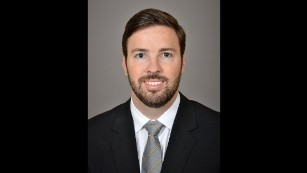ChicagoTribune: Donald Trump has lined up three New York hedge funds, including money from billionaire George Soros, to invest $160 million in his Chicago skyscraper, a key piece in perhaps the largest construction financing in the city’s history, according to sources and public documents.
Despite reports about the project’s record-breaking sales, most of them from Trump himself, many Chicago real estate developers and lenders have expressed doubts about whether the 90-story tower would ever be built.
“It is such a huge project, and the prices he said he was getting were so outside the norm,” said Robert Glickman, president and chief executive of Chicago-based Corus Bank.
“It was reasonable to say, `Is this real?'” he said.
Much of the skepticism springs from Trump’s own hype. “Chicago developers are much less flamboyant,” said Glickman.
The massive financing, which sources say also will include a $650 million construction loan from Deutsche Bank, should quell those doubts.
Trump flies to Chicago Thursday morning for a ceremonial demolition of the former home of the Chicago Sun-Times, 401 N. Wabash Ave., which will be replaced by his 2.5 million-square-foot tower. The demolition is expected to begin for real in January.
On Wednesday Trump declined to comment on the financing, emphasizing instead the luxury project’s record-breaking sales.
The chief executive of New York-based Trump Organization said he has agreements to sell three-fourths of the 461 condominiums and 227 hotel-condo units for a combined $515 million.
“Nobody to my knowledge anywhere in the United States has ever sold more than $500 million worth of apartments prior to construction,” he said. “It’s a great tribute to Chicago, to the location and to a great design.
“And, I guess, to Trump, when you think of it,” he added.
The investor trio is led by Fortress Investment Group LLC, according to a financing statement filed Oct. 19 with the Cook County recorder’s office.
Fortress, which manages more than $10 billion in investments, is familiar with the downtown Chicago condominium market after providing a key $26 million loan on the River East mixed-use development last year.
The document does not identify the other participants, but a key member is Grove Capital LLP, according to sources familiar with the transaction.
The firm manages most of the multibillion-dollar real estate portfolio of the $13 billion Soros Fund Management, from which Grove Capital was spun off last month.
The third investor is Blackacre Institutional Capital Management LLC, the real estate arm of hedge fund Cerberus Capital Management LP, which manages assets totaling $14 billion.
Executives with the three hedge funds could not be reached for comment.
The $160 million investment is in the form of a mezzanine loan, a kind of second mortgage that typically charges a much higher interest rate than a first-mortgage construction loan.
than a first-mortgage construction loan.
Unlike the mezzanine loan, which has closed, terms of the $650 million construction loan have not yet been finalized, sources said.
Frankfurt, Germany-based Deutsche Bank, an active commercial real estate lender in the U.S., is expected to split up the loan with other banks.
Chicago developer Steven Fifield admits he was a “total skeptic” about the project, which initially included a large portion of office space.
But the elimination of the office space and the steadily climbing condo sales helped change Fifield’s view about Trump’s chances to get financing.
“I thought it was a given with the number of presales he had,” said Fifield, president of Fifield Cos.
After 13 months of marketing, condo prices at Trump International Hotel & Tower Chicago have exceeded $900 a square foot, while hotel-condo units cost nearly $1,100 a square foot, according to an analysis of 53 units by Appraisal Research Counselors, a residential consulting firm.
Trump’s marketing firm recently put those units, including six hotel-condo units, on the Multiple Listing Service of Northern Illinois.
Almost two weeks ago Trump completed a buyout of his former joint venture partner in the project, Hollinger International Inc., the troubled parent of the Sun-Times.
Although lining up the financing was a big step for Trump, he still has hurdles to overcome, including avoiding construction delays and cost overruns.
Still, he expressed no concern about the doubts harbored by some local real estate executives.
“It’s a very expensive building to build because of the quality we are putting into it,” he said. “So people of course would say, `Gee, that’s a lot of money to raise.’
“But for me, it’s not a lot of money. You understand,” he said.
*** Not the first rodeo for Trump and it bears repeating:

Trump picked stock fraud felon as senior adviser
2015: WASHINGTON (AP) — Donald Trump knew a man he named as a senior business adviser in 2010 had been convicted in a major Mafia-linked stock fraud scheme, according to Associated Press interviews and a review of court records.
Trump had worked with Felix Sater previously during the man’s stint as an executive at Bayrock Group LLC, a real estate development firm that partnered with Trump on numerous projects after renting office space from the Trump Organization. But Sater’s past was not widely known at the time because he was working as a government cooperator on mob cases and the judge overseeing Sater’s own case kept the proceedings secret. After Sater’s criminal history and past ties to organized crime came to light in 2007, Trump distanced himself from Sater.
Less than three years later, however, Trump tapped Sater for a business development role that came with the title of senior adviser to Donald Trump. Sater received Trump Organization business cards and was given an office within the Trump Organization’s headquarters, on the same floor as Trump’s own.
Trump said during an AP interview on Wednesday that he recalled only bare details of Sater.
“Felix Sater, boy, I have to even think about it,” Trump said, referring questions about Sater to his staff. “I’m not that familiar with him.”
According to Trump lawyer Alan Garten, Sater’s role was to prospect for high-end real estate deals for the Trump Organization. The arrangement lasted six months, Garten said.

The revelation about Sater’s role is significant because of its timing and directness, and marks the first time the Trump Organization has acknowledged publicly that Sater worked for Trump after the disclosures of Sater’s criminal background. Trump has said that among his secrets of success is that he surrounds himself with the “best and most serious people” and with “people you can trust.”
Sater never had an employment agreement or formal contract with the Trump Organization and did not close any deals for Trump, Garten said.
“He was trying to restart his life,” Garten said. “I believe he was regretful of things that happened in the past.”
Trump did not know the details of Sater’s cooperation with the government when Sater came in-house in 2010, Garten said. But Garten noted that U.S. Attorney General Loretta Lynch praised Sater’s cooperation with the federal government, when senators asked about him during her confirmation hearings early this year. She said Sater cooperated against his Mafia stock fraud co-defendants and assisted the government on unspecified national security matters.
“If Mr. Sater was good enough for the government to work with, I see no reason why he wasn’t good enough for Mr. Trump,” Garten said.
He pleaded guilty in 1998 to one count of racketeering for his role in a $40 million stock fraud scheme involving the prominent Genovese and Bonanno crime families, according to court records. Prosecutors called the operation a pump-and-dump scheme, in which insiders manipulate the price of obscure stocks and then sell them to hapless investors at inflated prices. Five years earlier, a New York State court had sentenced Sater to more than a year in prison for stabbing a man in the face with a broken margarita glass.
Sater declined to discuss his work with Trump.
“Obviously a Donald-and-the-bad-guy piece is not interesting for me to participate in,” Sater wrote in an email to AP. His lawyer, Robert Wolf, said information about Sater in public records and lawsuits obtained by the AP was defamatory. He credited Sater’s stint as a government cooperator with potentially saving American military lives, although he did not provide details. Wolf told the AP to write about Sater’s past “at your own risk” but did not cite specific concerns.
After his 1998 racketeering conviction, Sater spent more than a decade as an informant on the Mafia and on national security-related matters. Federal prosecutors kept even the existence of Sater’s racketeering case out of publicly available court records for 14 years.
During that time, Sater launched a luxury real estate development career. Sealed court records prevented potential customers or partners from learning about his past association with organized crime. Sater altered his name, to Satter, and became a top executive in Bayrock, a development firm that partnered with Trump on the Trump Soho high-rise hotel in Manhattan and other branded luxury real estate deals.
Civil lawsuits — including a sealed case filed in U.S. District Court in the Southern District of New York that was obtained by the AP — have alleged that Bayrock engaged in a pattern of misconduct during Sater’s tenure, sometimes involving potential Trump projects. The AP obtained a copy of the sealed lawsuit, which was refiled last month, when the original complaint was included as part of a lawsuit Sater filed in an Israeli court. Bayrock’s attorney told AP that the firm did not mislead anyone about Sater’s past and denied any misconduct. The firm has not yet responded to a version of the complaint refiled in U.S. court last month.
Trump’s lawyer, Garten, said Trump had no knowledge of alleged improprieties at Bayrock or reason to believe that Sater was a major stakeholder in Bayrock’s projects. Trump only learned of Sater’s troubled past when The New York Times reported details in December 2007. In the article, Trump distanced himself from Sater, saying: “I didn’t really know him very well.”
Garten said Trump had no further interactions with Sater at Bayrock following the revelations of his criminal history. But a new relationship was formed in 2010 when Trump offered Sater office space and a chance to round up new business possibilities for the Trump Organization.
“The guy’s been in business a long time, he’s got a lot of contacts,” Garten said of Sater.
 Dubai
Dubai 
 Istanbul
Istanbul 






